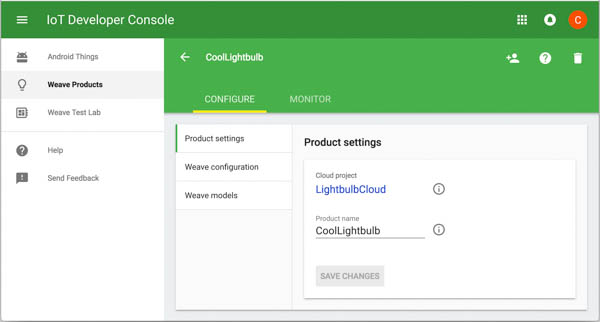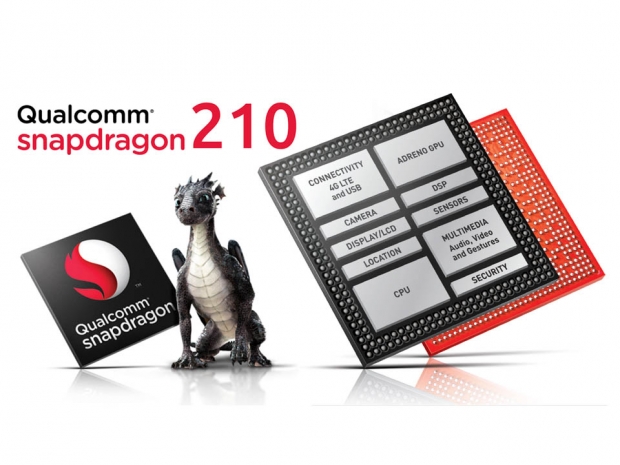Android Things is Google’s simplified, embedded version of Android for Internet of Things (IoT) devices and was announced at its I/O conference in 2015. Aimed primarily at low-power, low memory devices with as much as 32 to 64GB of onboard RAM, the platform intends to be a substitute for the much heavier Linux-based Android OS. It basically allows small IoT devices to handle basic connectivity tasks while communicating over a lightweight SDK called Weave. The protocol gives administrators the ability to monitor real-time device statistics and activations, test device functionality, and command device usage using the company’s graphical IoT Developer Console.
Google's IoT developer console
The first early builds were released in December as developer previews though were only compatible with a handful of devices, including the Intel Edison, Intel Joule, NXP Pico and Raspberry Pi 3. Though the Snapdragon 210 SoC was announced in September 2014, it contains an integrated X5 LTE modem (150Mbps down, 50Mbps up) with carrier aggregation, something which the other development boards do not.
As of 2017, there are over 120 common IoT platforms and a handful of the notable names include Amazon Web Services, Arduino, Cisco Cloud Connect, Google Cloud IoT, IBM BlueMix, IBM Watson, Kaa, Microsoft Azure, Oracle Integrated Cloud, Predix, SiteWhere, Salesforce IoT Cloud, ThingSpeak, ThingWorx and WebNMS.
Android Things to add compatibility with Google Assistant
The benefit of using Android Things, at least for Android users, is that it makes use of tools developers are already familiar with, including Android Studio, Google Play Services and Google Cloud Platform. There are a few known problems with the initial Android Things preview build, though Google says it will be releasing an update in the coming months that includes a framework for pushing out regular OS updates. This includes an update to the Weave communication protocol that will add compatibility for Google Assistant.
While other smart home frameworks including Samsung SmartThings and Philips Hue already work with Weave, other manufacturers including Belkin, Honeywell and TP-Link are currently in the process of implementing it as well.




